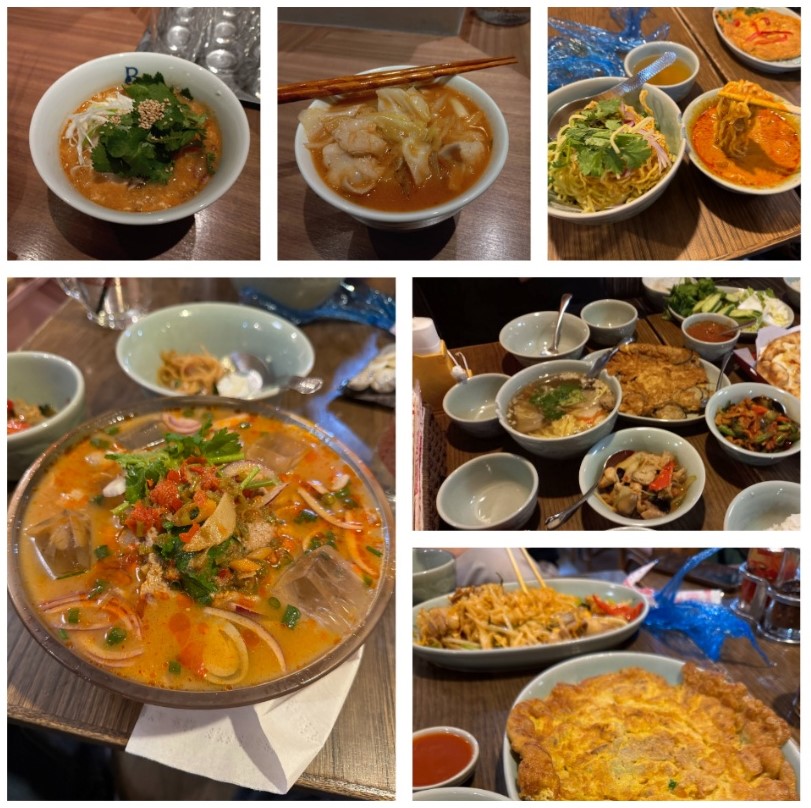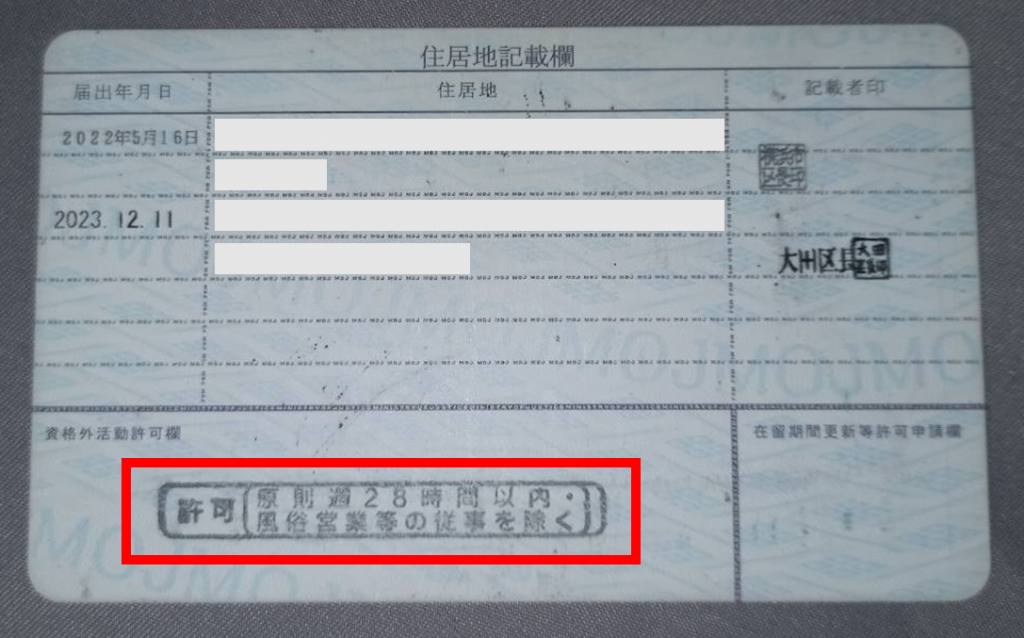It wasn’t until about a year after I arrived in Japan that I decided to start a part-time job. At that time, my main goal was simply to earn some extra money to fund my travels around Japan, not realizing the broader benefits that working could offer. Fast forward to today, and I’ve picked up two part-time jobs in restaurants. These experiences have turned out to be more than just a way to make money – they’ve taught me invaluable lessons along the way, both through the work itself and the process of applying for part-time jobs.
Why work part-time in Japan? Benefits beyond just earning money
Although it might just be a part-time job, it can provide enough money to fund your travels or spend on things you enjoy without disrupting your daily life. Especially in today’s economy, where everything feels expensive, even as a MEXT scholar receiving a monthly stipend, finances can still be tight. Working part-time while studying has helped ease my financial stress.
But beyond the financial benefits, one of the most valuable things I gained was a significant improvement in my Japanese language skills. When I started my first part-time job, I had only been in Japan for a year and a half. Before moving here, I had never studied Japanese seriously, so my language skills were quite limited. On top of that, my university classes didn’t provide many opportunities to practice speaking, making it even harder for me to communicate in Japanese.
Fortunately, my first job was at a Thai restaurant, where most of the staff could speak Thai, and the menu was written in Katakana. This made the learning curve a little easier, but I still had to pick up a lot in a short period of time. I remember trying to memorize useful phrases, only to forget them all on my first day. Once, a customer asked me for ice (氷 – こおり, kōri), but I didn’t understand and ended up bringing them the wrong thing three times. Luckily, we laughed it off, and that’s how I finally learned what “kōri” meant.
This is exactly how part-time work helps improve your Japanese: you learn by doing, by making mistakes, and by interacting with people daily. Over time, I picked up not just essential workplace phrases, but also casual conversation skills that made speaking Japanese feel more natural. Now, after working for a year and a half, I can have fun chatting with customers, talking about their interests, and even sharing sightseeing recommendations about my home country.
Not only will you improve your Japanese skills, but you’ll also develop important interpersonal skills, learn how to manage and interact with people, and gain knowledge about table manners. If you work in a restaurant, you might even get the chance to learn how to prepare food. In my case, I learned how to make drinks.
Another important thing I gained from working part-time – and something I believe is especially valuable for international students – is the sense of community. Of course, this might not be the case for everyone, but in my situation, I worked in a place with many Thai people, which made it easier for me to feel like part of the community there.
I have to admit, when I first moved to Japan, I often felt homesick. Being far away from family and friends, adjusting to different food, and not understanding the language made things difficult. But after starting my part-time job, I felt at home again. The people at the restaurant became like my brothers and sisters – sometimes even like parents. Whenever I had problems or things I couldn’t solve on my own, they were there to give me advice and support.

Also, in most workplaces, there will always be gatherings like drinking parties (飲み会, nomikai) or New Year’s parties (忘年会, bōnenkai), so you’ll never feel lonely. However, based on my experience working in two different places, I’ve realized that this isn’t the case everywhere. Some workplaces maintain strictly professional relationships, and the atmosphere might not be as warm and friendly. It really depends on the workplace.
One piece of advice I can give is to try finding someone who has worked at the place before and ask them about the work environment. That can help a lot in deciding whether the job is the right fit for you.
Landing a part-time job in Japan: where and how to apply
When I first decided to work part-time, my biggest concern was how to find a job, especially with my very limited Japanese skills. At the time, I had two main options: tutoring at an international school, where most positions required native-level English, or working at a restaurant, the most common choice for students. Fortunately, I had a senior who was already working at a restaurant, and he recommended me for a position. Thanks to his referral, I landed the job in less than a week.
This was a unique experience for me because I had never encountered Japan’s “introduction system” before. Essentially, if a workplace is short-staffed, current employees can refer their friends for a job. If the new hire passes the training period, the referrer receives a bonus. So, if you’re struggling to find a job, try reaching out to someone who works at a place you’re interested in – they’re often happy to help!
And if you’re not confident in your Japanese, restaurants and convenience stores, especially those with many foreign workers, can be great starting points.
Essential paperwork for part-time jobs in Japan: a simple guide
If you’ve already found the job you want to apply for, here are some tips to help you smoothly handle the necessary documents.
First, you’ll need a permission to work part time. This is an additional stamp on the back of your residence card that allows you to work up to 28 hours per week if you’re on a student visa

Working beyond this limit is illegal and not recommended, as it can not only affect your studies but also put your visa status at risk. I received my work permit at the airport when I first arrived in Japan, but if you didn’t, you can apply for it later with an “Application for Permission to Engage in Activity Other Than That Permitted Under the Status of Residence Previously Granted” (資格外活動許可, shikakugai katsudō kyoka). However, this process can be a bit lengthy and complicated.
More information regarding the process can be found on the internet:
- GaijinPot – The Basics of Working as a Student in Japan
- Japan Study Support – Living Guide for International Students in Japan
Next, once you have your work permit, you’ll need to prepare a résumé (履歴書, rirekisho). This is different from Western-style résumés and follows a standardized format. You can buy rirekisho forms at convenience stores or download them online. Some employers may prefer handwritten résumés, but printed versions are generally acceptable. From my experience, I submitted printed rirekisho twice and was accepted at both places, so using a printed version shouldn’t be an issue.
For those who aren’t confident in Japanese, filling out a rirekisho can be challenging. When I first applied for a part-time job, I didn’t even know what a rirekisho was! I asked an experienced friend to show me her rirekisho as a reference, then searched online guides to help me complete mine. The most difficult part is usually describing your strengths and why you’re applying for the job. Luckily, many example answers are available online to guide you.
My recommendation is to try writing it yourself, even if your Japanese isn’t perfect. This allows the employer to assess your language ability and place you in a suitable position.
A valuable opportunity in more ways than one
If you’re considering working part-time, my biggest advice is just to give it a try. Beyond earning extra money, you’ll gain valuable experiences, improve your language skills, and build meaningful connections. You never know what unexpected benefits you might discover along the way.
